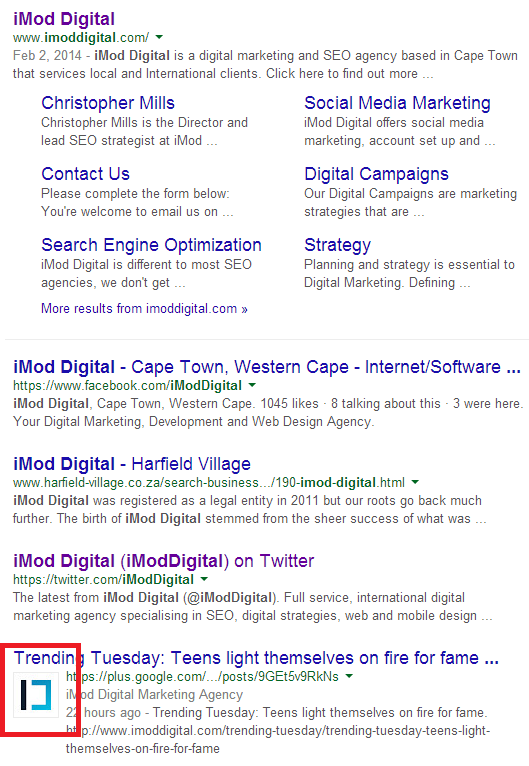When Google+ launched in the middle of 2011, the latest offering from Google was viewed as a golden child, and was dubbed as the soon to be challenger to the thrown that Facebook held firmly in its grasp. Along with the fan fare upon launch was a little feature that had SEO’s going crazy due to the potential new offering or tactic on the table and the way that it could change the game. Content marketing was a fairly new term, and guest posting was firing up as being the newest and greatest tactic, and this new feature, called Author Markup, was set to change the game. Everyone went crazy at the fact that they could now align all the content that they were producing under one author and therefore reap the benefits of this as they could tie it all back to one authoritative source, therefore adding a further strong ranking signal to Google.
It all started out focused on individual users, or authors. Along the way, in around early 2013 if we are not mistaken, Google introduced a new element to this markup. The subtle change allowed you to define if you were an individual author, or whether it was a brand that was producing the content. You could now markup content and attribute it to an author or a publisher. Enter businesses.
Now, three years later, we are attempting to find out the ramifications of having the Author Markup tweaked slightly as now the author’s photo would no longer show up. There has been much fanfare about how this isn’t cause to panic, and that you don’t need to change anything. The flurry of new posts regarding this change are all correct – don’t panic; this is just a small change and author rank is still alive and well. Simply put, you just won’t see your beautiful profile picture that you spent hours trying to get right. Don’t worry, I am sure you can use that selfie somewhere else.
Instead, all we think it has been, was a beautifully crafted game of chess by Google. Allow me to explain.
Google understood that to get their millions of users to use Google+, they needed buy in. Unfortunately, they didn’t have a draw card worthy of pulling users away completely from Facebook and thus needed to add something extra. They realized they had a massive opportunity to tie it into their biggest offering, namely search, and reap the rewards. Leveraging and intergrating products and services is Google’s game, and by playing to peoples ego’s, they managed to rope numerous individuals to add author markup to their sites, and therefore forced Google+ to be integrated into their website, all in the hope that they would reap the organic search benefits that supposedly came by having your photo drawing more attention within the search results. This worked, and soon after rolling this out, the next step was to add this funtionality for brands in their quest to lure more businesses onto Google+, and therefore further expand the legitimacy of their social platform.
Author photos have been removed from all search results, but they are still alive and kicking for sites that are marked as publishers. Take a look at a brand search for “iMod Digital” below.

No longer are other websites and individuals getting the advantage of having an eye-catching photo within the search results. Instead that advantage is reserved for brands and businesses on Google+.
All we have to say is well played Google. In an effort to get more brands and businesses using Google+, after initially drawing in individuals, their little two step plan seems to be working. This was clearly a strategy that they had planned for some time and it is a good sign that Google is not giving up on their social platform just yet. Some competition to the behemoth that is Facebook is a good thing, as well as having something that offers something slightly different can never cause any harm.
The only question that I have for Google, “is what two step dance are we going to see next”?

